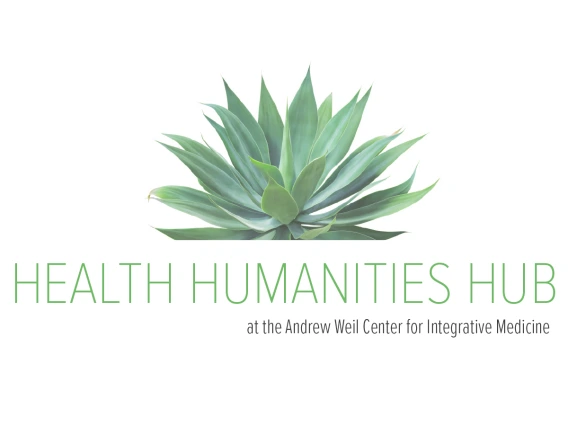
The College of Humanities is launching a new initiative to explore and build collaborations at the intersections of health and humanities.
Thanks to strong connections with the College of Medicine – Tucson, the Health Humanities Hub is anchored on the third floor of the new Andrew Weil Center for Integrative Medicine building.
“The Health Humanities Hub will unite international humanities scholars, students, medical professionals, community partners and wellness practitioners to explore the zone of discovery where medicine and the humanities overlap,” said Dr. Alain-Philippe Durand, Dorrance Dean of the College of Humanities.
Overall, the Health Humanities Hub will promote the principle that “humanities equals health,” Durand said.
“In plain language, this means never forgetting that humans exist at the center of every healthcare visit, every piece of health-related legislation and every one of the countless decisions made daily by individuals and communities about wellness, illness, disability, healing and mortality,” said Christine Hoekenga, founding coordinator of the Health Humanities Hub.
“Language, culture, religion, social context and personal and collective history all inform our approaches to health and wellness,” she said. “The humanities have so much to offer in this realm. The foundational skills of humanistic inquiry – critical thinking, careful observation, empathy, intercultural competence, creative expression, adaptability, collaboration and communication – are the very skills needed to improve the practice of healthcare for both patients and providers.”
Dr. Michael M.I. Abecassis, Humberto and Czarina Lopez Endowed Dean of the College of Medicine – Tucson, said the importance of humanities to health can be described by a quote from Sir William Osler, the father of modern medicine: “a good physician treats the disease; a great physician treats the patient who has the disease.”
“I think that implied in this quote is the fact that a patient may come from a certain background where culture, language, beliefs, religion, family, community and a number of other elements become essential components of how the disease and what needs to be done about the disease is communicated, and how the patient will accept and respond to the treatment plan,” Abecassis said. “And this is where the humanities can help a physician become a great physician, beginning with their training and continuing along the spectrum of their practice over time.”
Indeed, Hoekenga said, health professionals and caregivers are increasingly returning to these truths with fresh focus on concepts like health disparities and health equity, patient-centered care, social determinants of health and culturally-competent care.
Existing health- and medicine-related activities within the College of Humanities include faculty research on religion and health, multilingual translation and interpretation in a wide variety of public health and medical contexts, disability studies related to health and wellness, and cultural impacts on medicine and health.
At the undergraduate level, the college has majors in Religious Studies for Health Professionals and two emphases in Applied Humanities, Public Health and Medicine. Growing internship programs offer students real-world experience to complement their coursework. The Department of Spanish and Portuguese teaches translation and interpretation courses with a focus on health and has partnerships with Health Sciences to teach first- and second-year medical Spanish to pharmacy students and develop courses for the upcoming Physician Assistant Program.
Dr. Weil and his pioneering namesake center advocate for healthcare that attends to the whole person, including mind, body and spirit. The seven domains of integrative medicine (environment, movement, nutrition, relationships, resilience, sleep and spirituality) reflect the complexity of the human condition. They both represent the future of healthcare in the U.S. and hearken back to healing traditions from around the world.
“As I get to know the College of Humanities, I’m finding new pockets of innovative health-related scholarship, teaching and outreach every day. Likewise, I’m learning about exciting programs in the health sciences and across the university. The possibilities for improving health and the human condition through collaboration are quite literally endless,” Hoekenga said.

